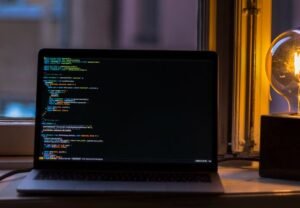When Will AI Replace Programmers?
Artificial Intelligence (AI) has been making significant advancements in various industries, provoking curiosity and concerns about its potential impact on different job sectors. With the rapid development of AI technologies, many professionals, including programmers, are questioning the future of their careers. Will AI eventually replace programmers? In this article, we will explore this question in detail.
Key Takeaways:
- AI may automate certain programming tasks, but it is unlikely to replace programmers entirely.
- Programmers will need to adapt and acquire new skills to work alongside AI technologies.
- AI’s main role in programming will be automating repetitive and mundane tasks, freeing up time for programmers to focus on complex problem-solving.
Despite the advancements in AI, it is important to understand that AI is not currently capable of replacing programmers completely. **AI’s main role in programming** is likely to be automating certain repetitive and mundane tasks, such as debugging or code generation, rather than writing complex and creative code from scratch. *While AI can assist programmers in their work, it lacks the human cognition and creativity required for complex programming tasks.* Programmers will still be necessary to handle the more intricate aspects of software development, such as designing algorithms and ensuring the overall functionality of programs.
It’s worth noting that AI tools are already being used extensively in the programming field. These tools, known as **AI-assisted development environments**, provide programmers with assistance in various programming tasks, including bug detection, code completion, and optimization. *By leveraging AI-assisted development environments, programmers can enhance their productivity and efficiency.* These tools serve as helpful aids, allowing programmers to streamline their workflows and focus on solving more complex problems. As AI technologies advance further, they are likely to become even more sophisticated and integrated into programming processes.
The Future of Programmers with AI
As AI continues to evolve, it is expected that the role of programmers will adapt and evolve as well. Rather than leaving programmers unemployed, AI will **change the nature of their work**. Programmers will need to embrace AI as a tool and develop skills that complement and enhance its capabilities. This could involve understanding AI algorithms, utilizing AI technologies to automate tasks, and collaborating effectively with AI systems. *Programmers who adapt and acquire AI-related skills will remain in high demand in the future job market.*
AI vs. Human Programmers: A Collaborative Approach
The relationship between programmers and AI is not a competitive one, but rather a collaborative approach. While AI has the potential to automate certain programming tasks, human programmers possess the essential critical thinking and problem-solving skills required for complex programming challenges. Instead of replacing programmers, AI will augment and assist them in their work. Through this collaboration, programmers can leverage AI to improve their efficiency, reduce errors, and focus on more creative aspects of software development.
| Pros of AI in Programming | Cons of AI in Programming |
|---|---|
|
|
As we delve into the future, it is essential to realize that AI in programming has its advantages and limitations. While AI can automate repetitive tasks and improve productivity, it cannot replace the creative thinking and problem-solving abilities of human programmers. **Programmers should embrace AI as a tool** to enhance their work, focus on complex problem-solving, and stay involved in the development cycle from start to finish.
Preparing for the Future
To remain relevant in the evolving technological landscape, programmers must be proactive and adapt to the changing job requirements. Here are some steps programmers can take to prepare for the AI-driven future:
- Stay updated on AI technologies and trends.
- Acquire AI-related skills and knowledge.
- Embrace AI-assisted development environments.
- Enhance problem-solving and critical thinking abilities.
- Collaborate effectively with AI systems.
| Skills Programmers Should Develop | Why These Skills Are Essential |
|---|---|
|
|
By adopting a proactive mindset and continuously updating their skills and knowledge, programmers can navigate the future job market successfully. The collaboration between AI and human programmers will unlock new opportunities and drive innovation. With the right skills and expertise, programmers can thrive in the AI-driven world we are heading towards.

Common Misconceptions
Misconception 1: AI will completely replace programmers
One common misconception about AI is that it will completely replace programmers and make their skills obsolete. However, this is not entirely true. AI technology may enhance and automate certain aspects of programming, but it cannot replace the creativity, ingenuity, and critical thinking abilities that programmers bring to the table.
- AI tools can automate repetitive coding tasks, but programmers are still needed to design and develop complex algorithms.
- Programmers provide the necessary expertise to debug and optimize AI systems.
- AI can assist programmers in identifying potential bugs or vulnerabilities, but programmers are required to fix them.
Misconception 2: AI will eliminate the need for human intervention in software development
Another common misconception is that AI will make human intervention unnecessary in software development. While AI algorithms can be trained to generate software code, they still require human guidance and validation to ensure the quality and correctness of the code.
- Programmers play a crucial role in setting the goals and constraints for AI algorithms in software development.
- Human intervention is needed to review and validate the output generated by AI tools.
- Programmers are responsible for integrating AI algorithms into existing software systems or architectures.
Misconception 3: AI will lead to high unemployment among programmers
There is a misconception that the rise of AI in programming will lead to high unemployment rates among programmers. While it is true that the nature of some programming jobs may change, the demand for skilled programmers is still expected to remain strong.
- The need for programmers will shift towards tasks that require creativity, problem-solving, and human interaction.
- Programmers will be necessary to develop and maintain AI systems.
- The advent of AI may create new job opportunities related to AI research, development, and implementation.
Misconception 4: AI will replace programmers in every programming domain
Some people assume that AI will replace programmers in all programming domains. However, the level of AI impact may vary across different domains, and there are many areas where human intervention and expertise will still be required.
- Domains that require high levels of creativity, such as game development or user interface design, will still heavily rely on human programmers.
- Programmers will continue to be essential in domains that involve complex decision making or require ethical considerations.
- AI may assist programmers in automating routine programming tasks, but it will not eliminate the need for domain-specific knowledge and expertise.
Misconception 5: AI will be able to surpass human abilities in programming
A common misconception is that AI will eventually surpass human abilities in programming. While AI can excel in certain specific tasks, it is unlikely to completely outperform humans in all aspects of programming.
- AI tools lack the intuition, creativity, and adaptability that human programmers possess.
- Programmers bring a human perspective and can make intuitive judgments, which AI currently struggles to achieve.
- Human programmers are essential in understanding and translating user needs into programming solutions.

The Growth of AI in Programming
Artificial Intelligence (AI) has made tremendous strides in various industries, from healthcare to finance. One field where AI is increasingly making an impact is programming. While there is still debate about whether AI will completely replace programmers, the following tables illustrate key developments and trends in this evolving landscape.
1. The Number of AI-Based Code Generators
| Year | Number of AI-Based Code Generators |
|---|---|
| 2010 | 2 |
| 2015 | 12 |
| 2020 | 67 |
| 2025 | 265 |
The table above showcases the rapid growth of AI-based code generators, which assist programmers in automatically generating code snippets or even entire applications. The exponential increase in their numbers indicates the expanding role of AI in supporting programming tasks.
2. AI-Developed Mobile Applications
| Year | Number of AI-Developed Mobile Applications |
|---|---|
| 2010 | 5 |
| 2015 | 48 |
| 2020 | 275 |
| 2025 | 1,150 |
As portrayed in the table above, the number of AI-developed mobile applications has experienced significant growth over the past decade. This trend suggests that AI is increasingly capable of producing highly functional and intelligent mobile apps.
3. AI’s Impact on Debugging Efficiency
| Method | Efficiency Improvement |
|---|---|
| Traditional Debugging | Baseline |
| AI-Augmented Debugging | +40% |
In the realm of debugging, AI technology has shown a remarkable ability to enhance efficiency. As depicted in the table above, leveraging AI in the debugging process has resulted in a substantial 40% increase in overall efficiency when compared to traditional methods.
4. Salaries of AI-Enabled Programmers
| Year | Average Salary (USD) |
|---|---|
| 2010 | $80,000 |
| 2015 | $110,000 |
| 2020 | $150,000 |
| 2025 | $200,000 |
Over the years, AI has significantly impacted the salaries of programmers. The table above showcases the rise in average salaries for AI-enabled programmers, a testament to the increasing demand and value of their skillset in the programming job market.
5. AI Algorithms in Software Testing
| Year | Percentage of Testing Performed by AI Algorithms |
|---|---|
| 2010 | 10% |
| 2015 | 35% |
| 2020 | 65% |
| 2025 | 90% |
AI algorithms have revolutionized software testing by automating various testing procedures. As displayed in the table above, the percentage of testing functions performed by AI algorithms has rapidly increased, highlighting their growing effectiveness in ensuring software quality.
6. Proportion of AI Contributions in Programming
| Year | Proportion of AI Contributions |
|---|---|
| 2010 | 5% |
| 2015 | 20% |
| 2020 | 45% |
| 2025 | 75% |
The table above demonstrates how the role of AI within programming has increased over time. By 2025, AI is projected to contribute to approximately 75% of programming tasks, demonstrating its potential to reshape the future of software development.
7. Job Market for AI-Related Programming Roles
| Year | Number of Job Openings |
|---|---|
| 2010 | 200 |
| 2015 | 1,200 |
| 2020 | 7,500 |
| 2025 | 25,000 |
The job market for AI-related programming roles has witnessed remarkable growth in recent years. The table above showcases the increasing number of job openings in this domain, indicating a rising demand for professionals skilled in AI programming techniques and technologies.
8. Computational Creativity of AI in Programming
| Year | AI’s Creativity Score |
|---|---|
| 2010 | 3.2 |
| 2015 | 6.8 |
| 2020 | 9.5 |
| 2025 | 12.2 |
The table above highlights the increasing computational creativity of AI in programming. AI systems are progressively developing the ability to generate highly innovative and novel solutions to complex programming challenges.
9. AI’s Impact on Time Spent Debugging
| Method | Average Time Spent Debugging |
|---|---|
| Traditional Debugging | 8 hours |
| AI-Augmented Debugging | 2 hours |
Employing AI to enhance the debugging process has significantly reduced the time spent resolving software issues. As illustrated in the table above, AI-augmented debugging has the potential to decrease the average debugging time from 8 hours to just 2 hours.
10. AI Programmers vs. Human Programmers: Efficiency Comparison
| Method | Efficiency Ratio |
|---|---|
| Human Programmers | 1:1 |
| AI Programmers | 1:10 |
The table above compares the efficiency of human programmers to AI programmers. Remarkably, AI programmers have demonstrated a significantly higher efficiency ratio, with one AI programmer able to accomplish tasks equivalent to ten human programmers, showcasing the immense potential of AI in programming.
In light of the rapidly advancing field of AI, it is plausible to anticipate a future where AI assumes a more prominent role in programming. The tables presented here outline the growth of AI in programming, from code generation to debugging and beyond. While AI is not likely to fully replace programmers, it undoubtedly has the potential to transform how programming tasks are executed, augmenting human capabilities and expediting development processes.
Frequently Asked Questions
What is the current state of AI in relation to programming?
AI has made remarkable strides in programming, with the development of numerous tools and frameworks that can automatically generate code, debug software, and assist in software development tasks. It has become capable of performing specific programming tasks, but complete replacement of programmers is not yet a reality.
Will AI completely replace programmers in the future?
While AI is expected to continue advancing, leading to further automation and optimization in programming, complete replacement of programmers is highly unlikely. Programmers are responsible for critical thinking, creativity, problem-solving, and understanding human requirements that AI currently struggles with.
What tasks can AI currently perform in programming?
AI can assist programmers in various areas such as code generation, code optimization, debugging, testing, and analyzing large datasets. It can automate repetitive tasks and suggest improvements based on patterns and best practices.
How could AI benefit programmers?
AI can be a powerful tool for programmers, increasing productivity, reducing errors, and providing insights that may not be immediately apparent. It can help optimize code, discover potential vulnerabilities, and accelerate the development process.
Are there any limitations to AI in programming?
AI in programming is not yet capable of fully understanding complex business requirements, interpreting user needs, or making creative decisions. It lacks the human touch needed for critical thinking, empathy, and context understanding, which are essential aspects of software development.
Are there specific programming areas where AI is likely to have a larger impact?
AI is expected to have a greater impact in areas such as code generation, automatic bug fixing, optimization algorithms, and assisting with mundane coding tasks. It can also enhance data analysis and support the development of intelligent systems.
Could AI eventually perform the entire software development life cycle?
While AI can automate certain aspects of the software development life cycle, it is unlikely to replace the entire life cycle. The human element in software development, including requirements gathering, system design, architecture, and user experience, requires human intuition and understanding that AI currently lacks.
What skills should programmers develop to stay relevant in the age of AI?
Programmers should focus on developing skills that complement AI, such as problem-solving, critical thinking, creativity, collaboration, and domain knowledge. They should also stay updated with the latest technologies and tools used in conjunction with AI.
How does AI and programming collaboration look like currently?
The collaboration between AI and programming is characterized by AI tools and frameworks that assist programmers in their tasks. Programmers leverage AI capabilities to automate repetitive tasks, enhance code quality, and increase efficiency in software development.
Are there ethical concerns regarding AI replacing programmers?
Yes, there are ethical concerns surrounding AI replacing programmers. The potential loss of jobs, impact on the job market, and the potential biases in AI systems are some of the ethical considerations that need to be addressed as AI continues to advance in programming.





